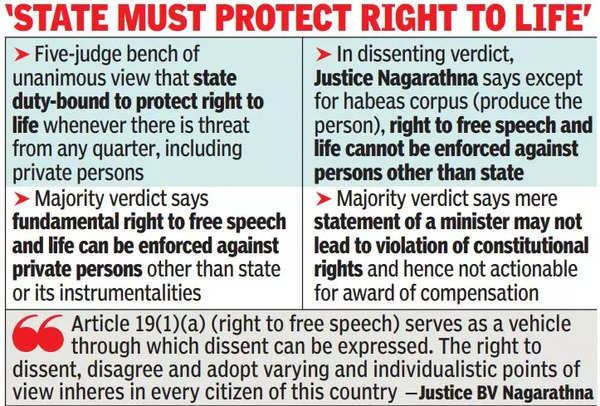Free Courses Sale ends Soon, Get It Now


Free Courses Sale ends Soon, Get It Now



Copyright infringement not intended
In News
Details
Freedom of Speech and Expression under the Indian Constitution
© 2024 iasgyan. All right reserved